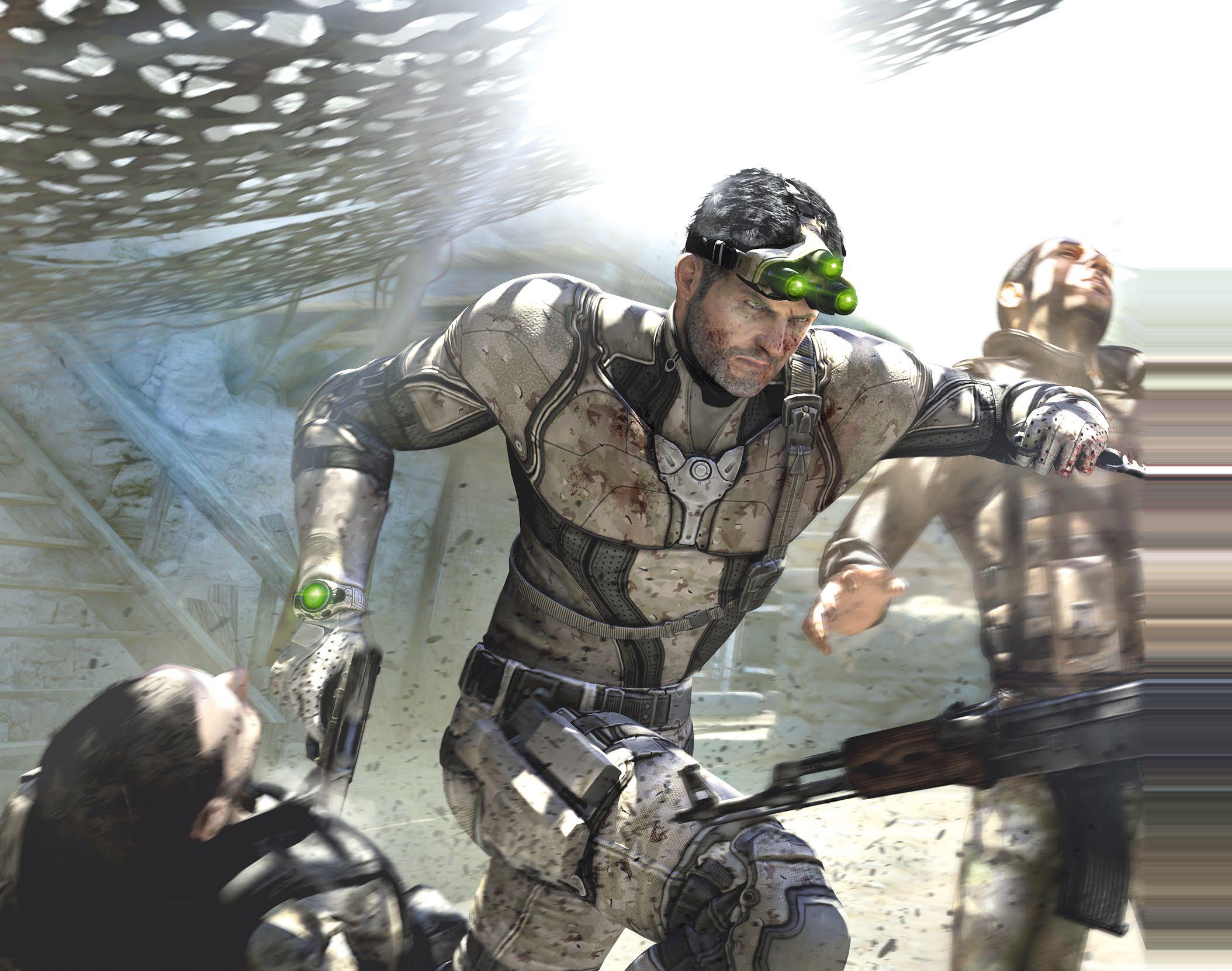Blacklist's narrative premise is almost elegant in its simplicity: the United States is subjected to a series of escalating terrorist attacks that will continue unless it withdraws all its troops from foreign soil.
The scale is global, the demands extreme, the stakes never higher. It explains why Fisher is allowed to jet around in a flying fortress as the head of the newly constituted Fourth Echelon, a crack squad of elite intelligence operatives committing a litany of atrocities across the world in the name of American interests.
While in previous instalments Fisher was careful in his exercise of the so-called Fifth Freedom the right to protect the first four American freedoms at any cost here he cuts a bloody trail through Libya, Iran, Iraq, Mexico, Paraguay, the UK and several US locales. Kidnapping, extortion, torture and aerial drone strikes are all par for the course in order to stop the so-called Engineers' blacklist of attacks.
The plot is so silly that it's difficult to imagine it could be anything other than a satire on US interventionism. It takes Fisher and his squad ten missions, for instance, to realise that no one in their right mind could seriously believe that the US would withdraw all of its deployments. The conclusion, pitched as a shock revelation, is that this can't be the Engineers' real goal.
Fisher, stripped of Michael Ironside's crackle in favour of Eric Johnson's (presumably cheaper) po-faced monotone, delivers lines such as "We are not going to stop this attack; we are going to stop all the attacks" with such profundity that it feels like an homage to Team America: World Police.
The charmingly flippant but coldly brutal terrorist leader Majid Sadiq, meanwhile, feels copy-pasted from the James Bond textbook of enigmatic psychopaths.
The choice of international locations, particularly given US foreign policy in the late 'oos and early '1os, feels incisive.
Blacklist targets carry titles such as American Consumption and American Fuel, which feel directed at the heart of US capitalism. The name "Engineers' meanwhile, could be a nod to social engineering, and Fisher's chronic inability to delegate may be a commentary on the banality of military decision-making; his superiors, after all, have no qualms delegating deadly operations to others.
image [https://cdn.magzter.com/1387349800/1725452903/articles/PyZldpt8Y1725525185646/R1A5zdP631725525428773.jpg]
The story beats occasionally escalate to the point of absurdity. Fisher gets smuggled into Guantanamo Bay in order to torture someone for information, in secret from Gitmo's security. The game culminates in a QTE that asks us to tap X to "exercise the Fifth Freedom", Fisher stooping over his victim with a knife. A post-credits scene cuts to a heartfelt reunion in front of an interrogation cell. If it all seems too dark for a joke, it's more disturbing to imagine it could be played with a straight face.
Yes, this is a series rooted in Tom Clancy the licence of choice for the right-wing libertarian technocrat doesn't mean it cannot be but that quietly subversive. The developers of the original Splinter Cell have gone on record saying that their game was intended to be ironic, appealing to every Clancy trope they could reasonably fit in. Blacklist was made by a different team, but it can feel like an expansion of that approach. At its most metaphorical, it might even say something about the growth model itself a sardonic wink at the ceaseless need to up the ante in a ten-year-old series, and unexpectedly poignant in the context of the current state of the videogame industry.
That might be the wrong interpretation, of course. Blacklist may hold a mirror up to Fisher as the not-so-carefully concealed sharp end of American exceptionalism and to his paymasters as the sales team for that ideology, but the game's creators never take a serious look into that mirror. We could view Blacklist as further reflection on the hypocrisy of US foreign policy, or that may be simply reading too much into a decade-old triple-A series based on right-wing source material. As confounding as that would be, perhaps the story really offers nothing deeper than its gung-ho face value.
Some of that narrative ambiguity carries over into how the game plays. Splinter Cell has always been expert at selling the fantasy of the elite covert operative, the original game standing out with its use of dynamic shadows, athletic environmental traversal and a range of gadgets for snooping, sneaking and pacification. Blacklist brings these mechanics back, but pairs them with elements from the action-focused Conviction.
Fisher may not live by the assassin's creed, but here he is a competent free runner, nimbly clambering over a staircase to drop down several floors, and quickly scaling walls. A silent takedown also gives him the ability to Mark And Execute' several enemies (unavailable at higher difficulty settings), the game slowing down to an approximation of bullet time as Fisher clears a room.
image [https://cdn.magzter.com/1387349800/1725452903/articles/PyZldpt8Y1725525185646/9995154059.jpg]
Inevitably, something is lost in the action. The original Splinter Cell's tentative pacing drew attention to the details: shadows wavering as sunlight cut through Venetian blinds; a cracked fish tank slowly draining to the level of the fracture; heat signatures from fingers recently pressing...


